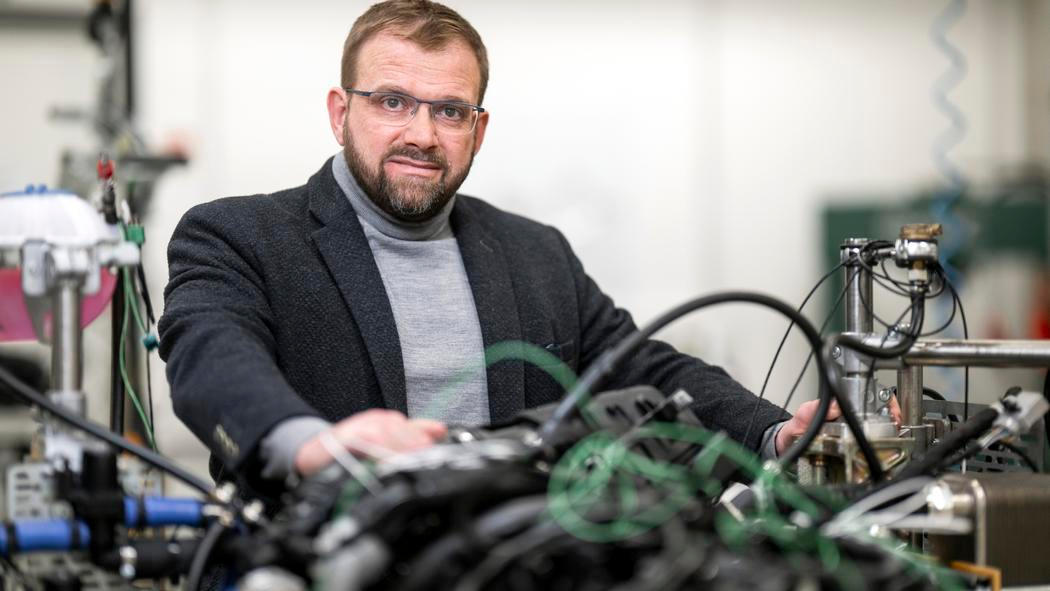Never has healthcare been in the spotlight as much as in the last year and half. The mainstream audience is hearing stories about herd immunity, the R factor, mRNA and hospital triage. These topics are being discussed on the social media and at pubs on Friday evening. Public health experts like Anthony Faucci are becoming superstars, presidents and prime ministers are having press conferences about very niche healthcare topics and pictures of lab scientists are appearing of covers of Time Magazine. After one and half years, Covid is still here. Multiple countries are fighting it, everybody is seeing what's happening in India and many other countries are still in a vulnerable phase. Moreover, there aren’t enough vaccines because it’s rather impossible to quickly manufacture vaccines for approximately 6 billion adults. At the same time, healthcare systems are vulnerable. There is lack of investments and funding to build resilient health systems and universal health coverage in poor and emerging countries. In the developed world, ageing, long term financial instability and lifestyle diseases are complicating the future. Like in many other industries, innovation and technology might be the solution for both worlds.
I am happy to be sitting here with two real experts to talk about the present and future of healthcare. They have literally seen it all: they are both healthcare experts, they have been active in business, manufacturing, public health, academics and the government side. Shirley Okere and Anthony Ajose. Shirley has spent her carrier in the pharmaceutical business and is currently a Global Quality Lead at a company that everybody knows - Pfizer. Anthony Ajose used to work for the WHO, NHS and UK Department of Health and the Gates Foundation. He has also worked in advisory capacity for multiple businesses and emerging market health systems. Great having you guys here!
Shirley: Thank you for having me today.
Anthony: Hello everyone.
Let's begin on positive note and talk
about the “heroes from the laboratories.” With dozens of R&D
teams from multiple countries working tirelessly, the Covid vaccine
was introduced in no time. We can definitely call these people
heroes. The first question is logically for Shirley. As a as Pfizer
exec, tell us how you see this exciting speed of R&D and the path
that led from research to product, then manufacturing and finally
onto the market?
Shirley: It’s definitely been quite an achievement. But first, to give you some background and to be completely transparent...when talking about the mRNA vaccines, which is what Pfizer and Moderna have developed, the technology is not necessarily brand new. The technology has been there, it’s just that it's kind of been the child of anti-cancer research. And we picked it and utilized it for vaccine R&D at the time of need.
Traditionally, vaccines were grown from the weakened form of the virus, taking months to grow. What we have done here is different. We used the messenger RNA as a virus copycat and the basis of the product. This approach helped us reduce the time it would normally take to naturally grow the actual weakened form of the virus. In addition, we skipped some of the challenges you face with preparing the process and forming the outcomes.

mRNA is quite a change in the process of vaccine development. Why hasn’t this been utilized before?
Shirley: Because there hasn't been such a large need for vaccine development before. No need to have them so quickly. Now there is a global need, which is a huge driver. That allowed developers to move the funding, staff, equipment and the best of resources into the R&D process and focus. This also created real global cooperation. Also let’s not forget clinical trial volunteers. Unlike before, now during the global pandemic, you have a high number of people, across all demographics, age groups and geographical locations, willing to participate in test efficacy. This has really helped to bring the product on the market in such a short time.
Definitely an achievement.
Shirley: Yes, also from the operations perspective. Let me now quote our Pfizer CEO, Albert Bourla, who said, that it was essentially a moon-shot challenge: thinking out-of-the-box, inter-unit cooperation, free from bureaucracy and a lot of hard work. Pfizer definitely has an innovative mindset and a do-it attitude. Those values combined with total determination to leverage already existing technology, made it possible to create this vaccine and also get us onto the market in record time. I can only speak for Pfizer because obviously I work there. But I can imagine the approach was similar at the other organizations as well because they have managed to do this in the same amount of time.
What about your collaboration with BioNtech?
Shirley: I’ll start by saying all insights I share we reflective of my views as a Pharmaceutical Professional and are not representative of Pfizer’s views as I am not authorised to speak on behalf of the company. It is public knowledge that Pfizer collaborated with Biontech before on the application of mRNA technology to flu vaccines. Pfizer has a history which indicates it is good at pivoting. I don't know if you know the story about Viagra (Sildenifil). Originally, it was a molecule intended for the treatment of hypertension and chest pain due to heart disease. During the clinical studies, we found out that it more effective for use in erectile dysfunction. There was a pivot, which led to pitching that drug accordingly. So, Pfizer was again able to essentially build on existing collaboration with Biontech and pivot from mRNA vaccine technology research for potential flu vaccines to quickly implementing existing processes for the Covid19 vaccine.
So, we have excellent products from multiple R&D organizations. But from your perspective Anthony, as public health expert, do we have enough? Enough products and enough manufacturing capabilities to cover the global needs quickly? This also brings to the table the topic of health equality, which is also a sensitive topic also politically. The WHO and other stakeholders are asking: what about the world’s poor, when only the rich north is saving itself? What about Africa or India?
Anthony: Yeah, that's a good question. There's a
fight among many countries that are trying to secure vaccines for
themselves. I understand that during the pandemic, when everybody is
panicking, governments naturally have to focus on their own
populations and vaccinate them first. This is logical. Furthermore,
it is not only the South versus the North because we have also seen
procurement struggles between Europe and the UK and Europe versus the
US.
However, the problem is that this is not
an epidemic but a pandemic. And we live in a world with pretty much
no borders. Thus, the virus can easily move from one hot spot
everywhere. I think this just highlights that it's a global problem
and needs to be addressed globally.
Now, bit from the emerging market
perspective, where I've done a lot of work. Yes, there has been a lot
of drug and vaccine donations from big pharmaceutical companies but
Africa is vast and these donations won’t fully protect the
population. It never will. So, addressing this is a huge challenge.
And even thought I fully understand that a lot of the western
countries are now focusing on opening their own economies, these new
virus variants and mutations might complicate their own situation if
we aren’t able to solve this problem globally.

Anthony, do you think that this might be the way to communicate the topics? That for example the British Prime Minister or the American president will tell their own population: “Guys, we are protected here now. However, once we reopen and the whole world isn’t covered, Covid will come back to haunt us.”
I think this should definitely be an important part of the conversation. Unfortunately, I think governments can be short-sighted sometimes. At first, every politician focused on curfews and lockdowns, then switched to diagnostics and quickly to vaccinations and now everybody is galloping towards reopening. But the virus is still here, it didn’t go anywhere... and since governments are now completely pre-occupied with reopening, they have already forgotten many lessons from the last year. Many of the steps I have just mentioned are interconnected.
Even though both of you now live in the United Kingdom, you both have roots in Africa. And Africa is an interesting story, given that it has been almost untouched by Covid. Why is that?
Shirley: I think it is a combination of things. Firstly, Africa is somewhat an excluded continent when it comes to global activity. So the ability of the majority of Africans to travel abroad and potentially mingle with other people is bit lower. Also, African vast geography is a factor.
However, I do think it is a ticking time bomb, and so to speak, it's highly unlikely that all of Africa and sub-Saharan Africa will completely escape Covid. I agree with Anthony, global effort is the key. Until everyone is safe, no one is safe because we live in a global society. It is in the best interest of the rich North to come up with a plan that includes Africa has a continent.
Anthony: Let me just jump in quickly. Let’s not forget the Ebola crisis that happened a few times. Because of this experience, many African countries were somewhat more prepared from the public health and social distancing perspectives than was the case in Europe. Social distancing was immediately enforced at many of the Covid transmission places, like public events, churches and religious events; definitely faster than in Europe, where we haven't really had a pandemic for the last 100 years.
That's an interesting angle. And yes, it might be that we, westerners, have forgotten what viruses and bacteria can do. Therefore, we underestimate them, we don’t comply with measures, we don’t believe our experts and we also don’t believe science, vaccines included. What’s your opinion about the issue of vaccine hesitancy, Anthony? How would you persuade people to comply?
Anthony: It's been a bit of a challenge because there's been a lot of negative news about the vaccines, a lot of conspiracy theories and some issues from the past in terms of ineffective healthcare communication from the public sector towards the people as well. Moreover, the rush to vaccinate people quickly – which is objective factor – didn’t help because the governments didn't take the time to educate people. So, a lot of people felt rushed into it. I even have to go around to my peer group and personally educate them. I am talking about explaining the benefits of getting vaccinated to highly educated and informed people in good positions. Many people in Africa and elsewhere may be heavily influenced by religious centres. You can have a pastor, who says I don't believe in this, don't take it. For many people, this pastor is a senior leader and many people listen to him.
Shall manufacturers also take a proactive approach to campaigning in order to fight vaccine hesitancy? Or would it just have an adverse effect because people would say: "Hey! Pfizer is just protecting its own product?"
Shirley: I was definitely going to pitch in on this. You're right in the sense that communications coming from a manufacturer might be a little bit of: “Ok, should I believe you when you’re ultimately going to profit from this?” To me, when I look at hesitancy, I look at it in three buckets: I look at it as a lack of confidence and trust in product safety. Convenience and getting it done easily is also an issue. Last but not least, complacency, so perceived low risk, is also an issue.
From the pharmaceutical perspective, I think the key is product transparency, R&D, production and manufacturing. From the government perspective, as Anthony hinted at well, there should have been more education about why it was launched so quickly. Why it was needed. Many of the people I spoke to were just concerned about it usually taking 10 to 15 years for a drug to get to market and this was launched in a year. Why should I trust it? There were a lot of missed opportunities in communication, but we were quite pressed for time.
Let’s go a bit further from Covid and talk about a broader area of infectious diseases. Microbial resistance has been a big issue for a few years already. Antibiotics are not 100% effective anymore because people have been overusing them we have been overusing them for animal production. Therefore, now they are less effective against more complicated strains or more complicated bacteria. Nobody is running into this area with R&D money because it’s not so sexy from the business perspective. It is not hypertension, mental health or Alzheimer’s. So do you think there should be public private partnership to fund antibiotic development?
Shirley: I can maybe start here. Antibiotic resistance is huge and so is the rise of super bugs. Poor countries are not capable enough to do any research and richer countries are more focused on advancement in technology, like the mRNA or personalized medicine or antibodies. So, more futuristic research is being favoured. But Covid has shown us that no one is safe unless everyone is safe. In a global economy, it would be a miss to ignore the resistance to antibiotics, especially in poor nations. In terms of partnership, this pandemic has also shown us how quickly we can get things done. Collaboration, information sharing, data sharing,... that was key to getting a product to market quickly. Now, I don’t know whether that will carry on. But is this the right way of doing things? Absolutely. But how should we balance that with the companies that are not strictly charities, right? A conversation about how to make it more attractive to all stakeholders needs to be had here.
Anthony: I completely agree with Shirley, it's a huge global problem. One, that hasn’t really been addressed robustly as it should be. Yes, joining forces, as all stakeholders, would be ideal every time, everywhere, but I am sure you understand that that’s not sustainable in terms of the business model for every single drug. A lot of these extreme costs also come from the bureaucracy and extended approval processes. But is there a will to shorten those cycles?
The problem is also on the ground. Many countries around the world lack robust health system. Many countries have an endless number of villages and countryside regions, with one doctor coming to see thousands of patients once a month. So, what can the doctor do to help people in need? He will give them a broad spectrum antibiotic for everything. It is the only and simple solution. Moreover, many patients globally don’t see a doctor at all, so they just buy really strong antibiotics from time to time. Do they really need them? Who knows...So yeah, I do believe that antibiotics are a big problem. The solution is combing public private research and bringing awareness of this problem before it becomes a full blown issue.
The problem is who will pay for it. Private or public actors? If the public, are our healthcare systems financially sustainable enough to pay a billion dollar in R&D for each new antibiotic? Plus, it’s not only having money for antibiotic research, healthcare systems as such are a bit weary everywhere. Healthcare professionals have had a very demanding 18 months. The finances are stressed, despite getting money from many governments, and long term prospects are unstable. Why? Because of long term care, life style diseases, extremely expensive innovations in the developed world and not enough money investment in healthcare system of the emerging countries. Not to mention an overall ageing population everywhere. Therefore, healthcare innovation and how to pay for it, stability of the financial systems and the changing roles of all stakeholders will be logical topics for the second part of our discussion next week. See you guys and thank you for a wonderful conversation!
Anthony: Good bye and see you.
Shirley: Have a great day everyone.
PhDr. Jan Ruzicka, MBA
Jan is a Chief External Affairs Officer at the Home Credit Group, the world’s leading consumer finance provider. Based out of Hong Kong, Jan runs company networks in the US, Asia and Europe. Before that, he used to live in Beijing, Cambridge and Prague. He even spent ten years working for the Czech Government, advocating and shaping the health reform as the Director-General at the Ministry of Health. Jan teaches Behavioural Economy and the Disruption of Finance and Healthcare at universities in Asia and Europe. He is especially interested in how innovation can create financial inclusion and health equality.
Shirley Okere, MPharm, MBA
Shirley is a trained pharmacist and expert in pharmaceutical law and ethics. She studied in Brighton and University of Cambridge. Originally from Nigeria, she worked at NHS, at Mayne Pharma and she was also an EMEA quality leader at Hospira, a US based pharmaceutical giant and the world's largest producer of generic injectable pharmaceuticals. Shirley has been a Pfizer executive for the past five years, where is she currently the Director of Quality. In her free time, she promotes careers in science among children, parents and teachers.
Anthony Ajose, MPH, MBA
Originally from Nigeria, Anthony studied in UCL, Cambridge and INSEAD. He has over a decade of experience in healthcare financing, economics and as a policy advisor. He has served in advisory roles to healthcare companies, government agencies, legislators and policy makers. In addition to roles at WHO and Bill and Melinda Gates Foundation, he has also worked in the NHS and UK Department of Health as well as advising companies investing in emerging market health systems in areas such as infrastructure, digital health and pharmaceuticals.










